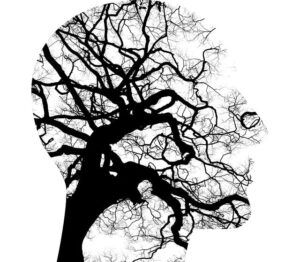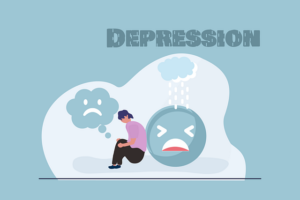cognitive behavioral therapy (CBT) in Pittsburgh offers a wide range of specialized therapeutic services for various mental health issues, including anxiety, depression, and trauma. The city's CBT therapists are highly skilled and use evidence-based practices to address the unique needs of individuals, couples, children, and adolescents. For those dealing with OCD, Pittsburgh provides both individual and group CBT sessions, emphasizing personalized treatment plans that focus on changing negative thought patterns and behaviors. Couples therapy incorporates CBT to enhance communication and resolve relationship issues, while also offering trauma-focused CBT for those who have experienced traumatic events.
Pittsburgh's approach to sleep disturbances includes CBT for insomnia, offering a non-medication path to improved sleep quality. Mindfulness-based CBT is particularly beneficial for conditions like OCD, helping individuals stay present and alleviate symptoms. The city's mental health resources are robust, with age-appropriate interventions for children and adolescents ensuring that young residents receive the support they need. Group CBT sessions provide a supportive environment where individuals can share experiences and coping strategies, reinforcing their progress in overcoming mental health challenges.
Pittsburgh's commitment to mental health care excellence is evident through its diverse range of CBT services, making it a city well-equipped to support residents facing mental health issues like anxiety, depression, and trauma. The city's CBT therapists are dedicated to providing accessible treatment options that are tailored to the needs of each individual, couple, or family they serve.
discover the transformative power of cognitive behavioral therapy (CBT) tailored to the unique needs of Pittsburgh residents. This comprehensive guide delves into the various facets of CBT as applied in Steel City, offering a nuanced perspective on its effectiveness in addressing depression, anxiety, trauma, insomnia, OCD, and relationship dynamics. Pittsburgh’s experts in CBT present innovative strategies and approaches that cater to both individuals and groups, ensuring a supportive network for those embarking on the journey to mental wellness. From teenagers to couples, and from group sessions to one-on-one therapy, the city’s robust array of CBT services reflects its commitment to psychological health and emotional resilience. Explore how cognitive behavioral therapy in Pittsburgh can be your ally in navigating life’s challenges with confidence and clarity.
- Mastering Depression with Cognitive Behavioral Therapy in Pittsburgh
- Pittsburgh's Approach to Overcoming Anxiety Through CBT
- Trauma-Focused CBT: Healing in the Heart of Steel City
- Sleep Disruption? CBT for Insomnia in Pittsburgh
- Mindfulness and Cognitive Behavioral Therapy Converge in Pittsburgh
- Pittsburgh's Solution to Obsessive-Compulsive Disorder with CBT
- Strengthening Bonds: Couples CBT in Pittsburgh
- Raising Resilient Young Minds: CBT for Teens and Children in Pittsburgh
Mastering Depression with Cognitive Behavioral Therapy in Pittsburgh

In Pittsburgh, cognitive behavioral therapy (CBT) has emerged as a cornerstone in addressing and mastering depression, with a network of skilled CBT therapists ready to offer their expertise. These professionals are adept at guiding individuals through the transformative process that CBT offers, tailoring interventions to meet each person’s unique needs. The approach involves identifying and challenging negative thought patterns and behaviors associated with depression, thereby empowering patients to adopt more positive and constructive ways of thinking and behaving. Pittsburgh’s commitment to mental health care is evident through its specialized programs for anxiety management, where CBT techniques are employed to help residents navigate their worries effectively. The city’s mental health community has a comprehensive understanding of the role that depression plays in exacerbating anxiety, and consequently, they provide integrated treatment approaches that address both conditions simultaneously.
For those who have experienced trauma, Pittsburgh offers trauma-focused CBT, a specialized form of therapy designed to help individuals process and overcome traumatic experiences. This approach is sensitive to the complex emotions and reactions that trauma can evoke, ensuring a supportive environment for healing. Additionally, CBT therapists in Pittsburgh are adept at applying this therapeutic technique to treat insomnia, offering Pittsburgh sleep solutions that not only address the symptom but also tackle its underlying causes. The city’s CBT practitioners also specialize in mindfulness-based CBT and CBT for OCD, providing residents with tailored interventions that incorporate mindfulness practices or focus on obsessive-compulsive symptoms, respectively. Furthermore, couples looking to strengthen their relationship can benefit from couples CBT, a form of therapy that addresses relationship issues by modifying unhelpful patterns of behavior and communication. For younger individuals, Pittsburgh’s approach to CBT is tailored to the developmental stages of teens and children, ensuring that interventions are appropriate for their cognitive and emotional maturity levels. Group CBT sessions in Pittsburgh also serve as a support network, offering a space where individuals can share experiences and learn from each other under the guidance of seasoned CBT therapists. Through these various applications of CBT, Pittsburgh stands as a testament to the versatility and effectiveness of this therapeutic approach in overcoming depression and its associated challenges.
Pittsburgh's Approach to Overcoming Anxiety Through CBT

In Pittsburgh, cognitive behavioral therapy (CBT) has become a cornerstone in addressing various mental health concerns, with a particular focus on overcoming anxiety. CBT therapists in Pittsburgh employ evidence-based techniques tailored to the unique challenges faced by residents. These professionals work diligently to help individuals identify and alter negative thought patterns and behaviors that contribute to anxiety. By fostering a collaborative environment, these therapists guide clients through the process of understanding the connections between thoughts, emotions, and bodily sensations, which is central to CBT’s effectiveness.
Pittsburgh’s approach to anxiety management via CBT is multifaceted, catering to diverse populations including those grappling with depression, trauma, insomnia, and obsessive-compulsive disorder (OCD). For instance, trauma-focused CBT in Pittsburgh is designed to help survivors process and overcome traumatic experiences. Similarly, CBT for insomnia addresses the psychological underpinnings of sleep disturbances, offering a holistic solution to improve sleep quality. Couples CBT, on the other hand, focuses on enhancing communication and relationship dynamics by addressing issues rooted in cognitive distortions. Additionally, CBT for teens and children is adapted to engage younger clients with interactive and age-appropriate techniques, ensuring that the therapeutic approach is accessible and effective. Group CBT sessions provide a supportive network where individuals can share experiences and strategies, reinforcing the skills learned through therapy. Through these various applications of CBT, Pittsburgh has established itself as a city committed to providing residents with effective tools to overcome anxiety and improve their mental well-being.
Trauma-Focused CBT: Healing in the Heart of Steel City

In the heart of Steel City, cognitive behavioral therapy (CBT) has emerged as a beacon of hope for those grappling with trauma. The Pittsburgh community boasts a network of skilled CBT therapists who specialize in trauma-focused CBT, offering a personalized approach to healing. These experts are adept at guiding individuals through the intricacies of their thoughts and feelings, helping them to confront and reframe traumatic experiences. The process is not just about understanding the past; it’s about empowering patients with coping mechanisms and resilience for the future. In Pittsburgh, this form of therapy is tailored to address the unique challenges faced by residents, ensuring that each session is a step towards recovery and self-compassion.
The impact of trauma can be far-reaching, often manifesting as depression or anxiety, which can disrupt daily life. CBT therapists in Pittsburgh are well-versed in addressing these comorbid conditions, integrating techniques specifically designed to alleviate symptoms of depression and anxiety alongside the trauma-focused work. This holistic approach ensures that patients receive comprehensive care, with each session contributing to a more stable mental health foundation. The city’s commitment to providing accessible CBT services has made it a destination for those seeking effective treatment for their emotional and psychological needs, reflecting Pittsburgh’s dedication to mental wellness for all its residents.
Sleep Disruption? CBT for Insomnia in Pittsburgh

In Pittsburgh, cognitive behavioral therapy (CBT) has emerged as a transformative approach in addressing sleep disruptions, particularly insomnia. The city’s CBT therapists are adept at identifying and altering negative thought patterns that contribute to sleepless nights. By employing CBT techniques tailored for insomnia, these professionals help individuals modify their behaviors and perceptions related to sleep, promoting healthier sleep habits and patterns. This form of therapy is not a mere quick fix; it empowers Pittsburgh residents with long-term strategies to overcome the chronic nature of insomnia. The process involves exploring the thought processes that can heighten anxiety around sleep, thereby disrupting the natural circadian rhythm. Through this evidence-based practice, CBT therapists in Pittsburgh guide patients towards a more restful night’s sleep and better overall health.
Moreover, the Pittsburgh CBT approach for insomnia is particularly effective due to its adaptability. It can be personalized to suit various age groups, including teenagers and children, who may experience sleep disturbances as a result of anxiety or depression. Additionally, group CBT sessions in Pittsburgh offer a supportive environment where individuals can share experiences and learn from each other, further reinforcing the techniques learned. These sessions are facilitated by experienced CBT therapists who specialize in anxiety-related disorders, including those that manifest as sleep issues. The comprehensive nature of these programs not only tackles insomnia but also addresses any underlying depression or anxiety, offering a holistic and effective solution for Pittsburgh residents struggling with sleep disruption.
Mindfulness and Cognitive Behavioral Therapy Converge in Pittsburgh

In Pittsburgh, the convergence of mindfulness and cognitive behavioral therapy (CBT) is providing residents with effective strategies to manage a myriad of mental health challenges. CBT therapists in Pittsburgh are adept at integrating mindfulness techniques into their practice, offering clients a more holistic approach to therapy. This blend allows individuals to become more aware of their thought patterns and emotional responses, fostering a greater sense of control over their mental state. For those grappling with depression, CBT therapists in Pittsburgh tailor interventions that help clients identify and challenge depressogenic thoughts, leading to improved mood and daily functioning. The city’s mental health professionals emphasize the importance of personalized care, ensuring that each individual’s unique experiences are addressed in a compassionate and effective manner.
Similarly, for those suffering from anxiety in Pittsburgh, CBT therapists provide evidence-based tools that empower individuals to confront and manage their anxieties. These practitioners specialize in CBT techniques that target the cognitive distortions and behaviors associated with anxiety disorders. In trauma-focused CBT sessions, specially trained therapists guide residents through the healing process, helping them to process traumatic experiences and develop coping strategies. Pittsburgh’s sleep solutions also incorporate CBT for insomnia, offering a structured approach to improving sleep quality without relying solely on medication. The city’s commitment to mental health is further demonstrated through mindfulness-based CBT programs, where practitioners help clients cultivate a non-judgmental and present-centered awareness that can alleviate symptoms of conditions like obsessive-compulsive disorder (OCD). Couples in Pittsburgh seeking to strengthen their relationships can also benefit from couples CBT, which addresses communication patterns and relationship dynamics. Meanwhile, children and teens in the city have access to age-appropriate CBT approaches tailored to their developmental stages, ensuring that help is available for all ages. Group CBT sessions provide a supportive network where individuals can share experiences and strategies with peers facing similar challenges, fostering a sense of community and mutual support.
Pittsburgh's Solution to Obsessive-Compulsive Disorder with CBT

In Pittsburgh, cognitive behavioral therapy (CBT) has emerged as a cornerstone treatment for individuals grappling with obsessive-compulsive disorder (OCD). CBT therapists in Pittsburgh specialize in identifying and altering the thought patterns and behaviors that fuel OCD. By working collaboratively with clients to understand their triggers and develop personalized strategies, these therapists equip patients with tools to manage symptoms effectively. The Pittsburgh approach to CBT for OCD is characterized by its evidence-based practices, which are grounded in scientific research and tailored to meet the diverse needs of those affected by this anxiety disorder.
Pittsburgh’s solution to OCD through CBT not only involves one-on-one therapy but also offers group sessions, providing a supportive environment where individuals can share experiences and learn from each other. These group CBT sessions are facilitated by seasoned CBT therapists who bring a wealth of knowledge in addressing the unique challenges associated with OCD. The city’s commitment to mental health care is evident through its wide array of depression CBT Pittsburgh resources, anxiety CBT Pittsburgh programs, and trauma-focused CBT Pittsburgh services. These comprehensive offerings reflect the city’s dedication to providing accessible and effective treatment for OCD, ensuring that Pittsburgh residents have the support they need to overcome this condition and lead fulfilling lives.
Strengthening Bonds: Couples CBT in Pittsburgh

In Pittsburgh, couples confront a myriad of challenges that can strain their relationships and lead to mutual feelings of anxiety, depression, and trauma. Recognizing this, cognitive behavioral therapy (CBT) has emerged as a beacon of hope for many within the Steel City. CBT therapists in Pittsburgh are adept at tailoring interventions to address the unique dynamics present in couples’ interactions. By identifying negative thought patterns and behaviors that contribute to relationship difficulties, these experts guide partners through a transformative process. They equip couples with tools to reframe their perspectives, foster effective communication, and enhance empathy for one another. This approach not only alleviates symptoms of anxiety and depression but also promotes healing from past traumas. The result is a strengthened bond, where both individuals feel understood and supported. Couples CBT in Pittsburgh is a testament to the power of evidence-based practices in nurturing healthy, resilient relationships, ensuring that love and trust can flourish even amidst life’s challenges.
Furthermore, the collaborative nature of Couples CBT ensures that both partners are actively involved in their healing journey. Pittsburgh’s specialized CBT therapists create a safe and supportive environment where each partner can voice concerns and work towards shared goals. This approach is particularly effective for couples grappling with issues such as depression or anxiety, as CBT has been shown to be highly efficacious in managing these conditions. Additionally, trauma-focused CBT in Pittsburgh offers specialized treatment modalities that address the unique needs of individuals who have experienced traumatic events, helping couples navigate their way towards healing and recovery together. Through CBT, couples can learn to overcome obstacles, build deeper connections, and lay the groundwork for a lasting partnership.
Raising Resilient Young Minds: CBT for Teens and Children in Pittsburgh

In Pittsburgh, cognitive behavioral therapy (CBT) has become a beacon of hope for young minds grappling with mental health challenges. CBT therapists in Pittsburgh specialize in tailoring interventions to address the unique needs of adolescents and children, fostering resilience and coping skills that are crucial for their development. These professionals employ evidence-based techniques that help reframe negative thought patterns and behaviors associated with conditions like depression and anxiety. For instance, depression CBT Pittsburgh programs are designed to empower teens by identifying and altering thought distortions that contribute to depressive symptoms, equipping them with strategies to maintain a positive outlook and enhance their quality of life.
Trauma-focused CBT in Pittsburgh offers specialized support for children who have experienced traumatic events. By creating a safe and supportive environment, these therapists guide young clients through the process of understanding their experiences, processing emotions, and developing healthy coping mechanisms. This approach not only aids in overcoming the immediate effects of trauma but also lays a foundation for long-term mental wellness. Additionally, CBT for insomnia Pittsburgh services are integrated into some youth programs, recognizing the significant impact that sleep disturbances can have on mental health. Through group CBT sessions and Pittsburgh’s support networks, these interventions become accessible, fostering a collaborative approach to healing and growth among our city’s youngest residents.






